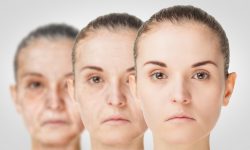 Exposure to pollutants, such as UV rays, industrial chemicals and hazards, cigarette smoke, and ozone can lead to production of free radicals in our bodies. Free radicals can interact with biomolecules, such as DNA or a protein causing damage that keeps them from working properly. This will damage a persons DNA and tissues and if not repaired can increase the speed at which a person ages. This is collaborated by a study from Eric E Kelley, a West Virginia Univ. researcher and the Univ. of Minnesota.
Exposure to pollutants, such as UV rays, industrial chemicals and hazards, cigarette smoke, and ozone can lead to production of free radicals in our bodies. Free radicals can interact with biomolecules, such as DNA or a protein causing damage that keeps them from working properly. This will damage a persons DNA and tissues and if not repaired can increase the speed at which a person ages. This is collaborated by a study from Eric E Kelley, a West Virginia Univ. researcher and the Univ. of Minnesota.
The research used genetically-modified mice missing a crucial DNA-repair protein in their hematopoietic stem cells. These are immune cells that are immature and eventually develop into white blood cells. Because the mice were missing this protein they were not able to repair any damaged DNA that accrued in immune cells.
This aged the mice at a faster rate where a 5-month old mouse was similar to a mouse that was 2-years old. The mice displayed age-related issues like osteoporosis, hearing loss, visual impairment, renal dysfunction and hypertension prematurely due to it being unable to repair its DNA. For comparison, a 2-year old mouse is about the same as a human that is 70-80 years old.
The study showed that cell aging markers and cell damage and oxidation were greater in the genetically-modified mice in comparison to a wild mouse. In addition, the kidney, liver and other organs also showed damaged cells, therefore, displaying that the damage is not only related to the immune cells.
It is unavoidable for a person to completely deter their exposure to pollutants but there are ways a person can decrease it. If a person limits junk food, drinking, smoking and exposure to the sun, pesticides and chemicals it would go a long ways to prevent the increase of free radicals. The defense system in a persons mitochondria cannot keep up with too much exposure thus not able to repair the damage.
This study suggests that premature aging could be prevented by limiting exposure to pollutants and making good lifestyle choices and changes.
To view the original scientific studies click below:An aged immune system drives senescence and ageing of solid organs





